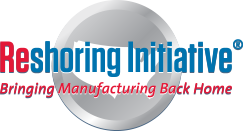Whitepaper on Trade Facilitation and Trade Enforcement Act of 2015
Resilinc has released a new thought leadership whitepaper on the new forced labor legislation that is set to impact global supply chains worldwide. It is available for immediate download here.
On February 24th, President Obama signed into law the Trade Facilitation and Trade Enforcement Act of 2015. The new legislation now officially prohibits the importation of goods produced by forced labor or child labor, closing an 86 year old loophole and reauthorizing the Customs and Border Protection Agency to seize any imports suspected of being produced by forced labor. Forced labor produced goods are common across industries, and the new law is slated to significantly impact global supply chains. Forced labor hidden in the supply chain presents a palpable, three-pronged risk to companies, irrespective of industry or company size: business continuity risk, brand risk, and compliance/legal risk.
The premise of this whitepaper is that companies may be inadvertently linked to sub-tier suppliers that may engage in unethical, and now, purely illegal, business practices. “Clean” companies may still be at risk due to increased scrutiny of US imports and newly implemented import regulations. Regardless, the new law will inadvertently require companies to achieve a greater degree of supply chain visibility to assure both the government and the public at large that forced labor has no role in their supply chains.
This whitepaper provides:


